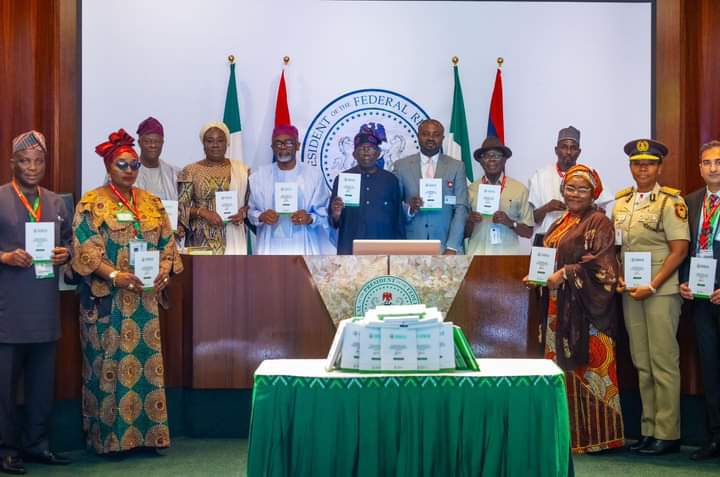By our Reporter
As part of effort to provide more opportunities for Nigerians, President Bola Tinubu has launched the Expatriate Employment Levy (EEL) guidelines at the State House, Abuja.

The EEL initiative is a landmark step towards fostering economic growth and is anticipated to yield several benefits, including revenue generation for the government, enhancement of nationalization and indigenization efforts, facilitation of knowledge transfer, and employment opportunities for Nigerians.
Speaking on the importance of the initiative, the Minister of Interior, Hon. Dr. Olubunmi Tunji-Ojo, emphasized its alignment with the government’s agenda for job security and economic prosperity.
Dr. Tunji-Ojo stated, “The Expatriate Employment Levy is a strategic measure aimed at promoting labour and technological domestication in Nigeria. This initiative underscores our commitment to creating employment opportunities, enhancing revenue generation, and fostering economic growth through public-private partnerships.”
He further elaborated on the objectives of the EEL, emphasizing its role in ensuring the employment of Nigerians by both foreign and local companies operating in the country, adding that the initiative seeks to close wage gaps between expatriates and Nigerian workers while facilitating the transfer of knowledge and skills to the local workforce.
Following a rigorous review process, including an Outline Business Case assessment and stakeholder engagements, the Ministry of Interior, in collaboration with relevant government agencies, formulated comprehensive guidelines and a robust concession agreement to guide the implementation of the EEL project.
The EEL project which was approved by the Federal Executive Council on May 17, 2023, mandates employers to pay a levy for hiring expatriates, to foster the development of the local workforce and reduce dependence on foreign expertise.
Adherence to the EEL is obligatory for all companies employing expatriates across diverse sectors, aligning with Nigeria’s quest for economic empowerment and self-reliance.
The Ministry of Interior remains committed to implementing initiatives that promote national development and create a conducive environment for sustainable growth.